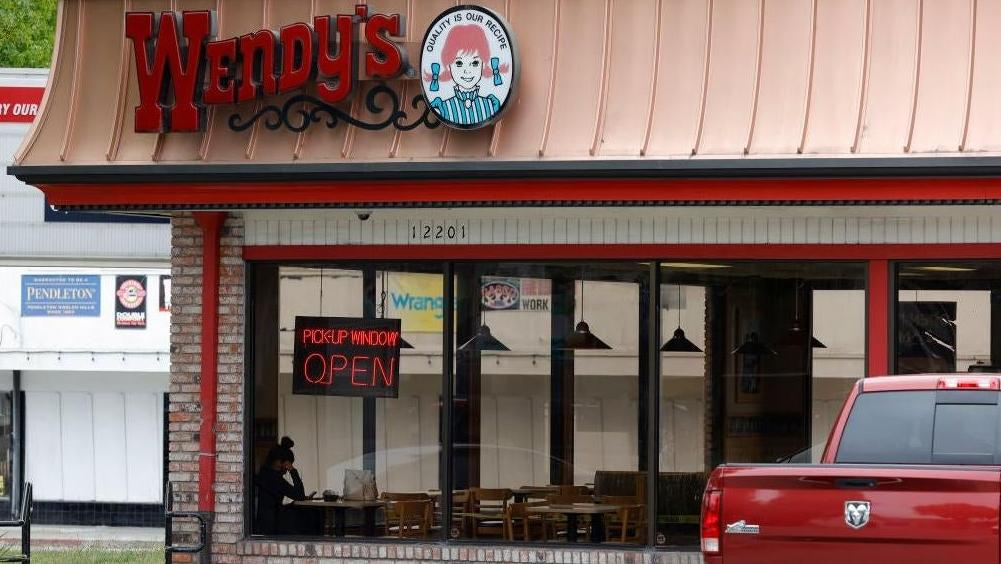How Iceland Developed A Taste For 'Forbidden' Burgers
Iceland is historically a tough environment for fast food chains—but Icelanders apparently really like square burgers.
Update, May 6, 2022: Wendy's apparently isn't coming to Iceland, after all. More information here.
If Fritz Lang directed a film noir about fast food, Iceland would be the femme fatale. She's gorgeous, with legs for days and a body built by Baconators. But she's got a dark secret: she's hostile to any and all fast food operations that dare breach her borders. Convoluted metaphors aside, Iceland has a complicated history of driving away American fast food companies. But, according to a newswire sent to The Takeout, Wendy's is ready to set up shop in the Land of Fire and Ice. The move could point to a permanent shift in Icelandic dining culture.
Does Iceland have fast food?
Iceland welcomed a number of fast-food chains in the late 1990s and early 2000s—but most of those locations bit the dust. Mashed reports that the first Icelandic McDonald's opened in 1993, but "business gradually began to cool down" until 2008. At that point, the global economic collapse took a major toll on the Icelandic króna. The currency's value fell by half; that, combined with high import costs for McDonald's ingredients, forced McDonald's out of the country.
High import costs are just one factor challenging Icelandic fast food operations. Per the Reykjavík Grapevine, an Icelandic English-language magazine, geography is also a problem. In 2019, the Grapevine cited Davíð Þorláksson, director of competitiveness at the Confederation of Icelandic Enterprise. Þorláksson told the Grapevine: "The country's geographical isolation leads to higher transportation costs that pose problems for restaurants that need to import a large portion of their resources." That issue may have driven the closure of other popular chains—like Dunkin', which closed in 2019 just four years after making its debut in the country.
Why is Wendy’s expanding to Iceland?
Like other chains, Wendy's has tried—and failed—to infiltrate the Icelandic market. Per the release sent to The Takeout, the fast food restaurant's single Icelandic location was run by the U.S. Army in Iceland's Keflavík base from 1992 to 2006. The brand writes:
"However, Icelanders were prohibited to buy from the restaurant after local hot dog merchants complained about Wendy's unfair tax advantage (since it was run by the US army and was exempt from local taxes). It is also quite known that Icelanders had many sneaky ways to obtain the square burgers with the help of US troops and their families."
There's no official word on those sneaky tactics, though I'm imagining some sort of underground burger patty trading ring.
But now, Wendy's has now licensed four locations in Iceland: three locations in and around Reykjavík, a "possible location" in the picturesque town of Akureyri, and an outpost at Keflavík Airport, Iceland's main international airport.
So, why is now a good time for Wendy's to return to Iceland? Is there evidence that the country is economically primed for more fast food options? To find out, I spoke with Wendy's Iceland spokesperson, Oddur Friðriksson. Friðriksson points out that the decision is at least partly based in Iceland's burgeoning tourism industry, especially since Iceland has lifted all pandemic travel restrictions.
"There is a foreseeable increase in tourism in Iceland this summer and a prime opportunity for Wendy's to make a presence as soon as possible," Friðriksson told me over email.
Friðriksson is right: Iceland's tourism numbers are spiking. Earlier this year, Forbes cited a new report from an Icelandic research firm that says around 1.2 million tourists will come to Iceland in 2022. The firm also cited tourism as a "key factor in Iceland's potential economic growth" in its macroeconomic forecast for 2022-2024.
Friðriksson went on to explain that the move is part of Wendy's broader expansion into Europe, which started in the UK last year and will continue in 2022 with plans to open 50 new restaurants.
"Icelanders have a great affinity for companies returning to the market, or international brands announcing their arrival," Friðriksson says. "The special bond through the Wendy's ban has also provided a unique opportunity to fulfill the craving Icelanders have for our 'forbidden' square burgers."
Forbidden or not, we'll be keeping an eye on this move from Wendy's. It remains to be seen whether the chain can overcome the historical difficulties of slinging burgers in Iceland.
